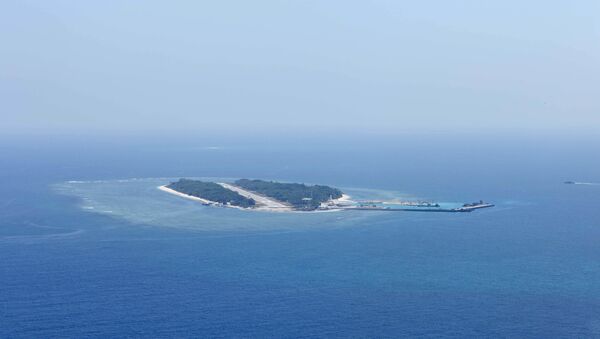China calls the Spratly Islands the Nansha Islands, and is carrying out land reclamation and island-building there. However, some of the islands in the archipelago are also claimed by Malaysia, the Philippines and Vietnam.
The nearby Paracel Islands and key shipping lanes in the South China Sea are also subject to territorial disputes, which China wants to solve by bilateral negotiations. However, the Philippines, backed by the US, wants to take the matter to international arbitration.
On Friday China Daily published an interview with the Mayor of Sansha, China's southernmost city, who revealed that the tourist development in the Spratly Islands will be similar to the Maldives.
"We will develop some islands and reefs to accommodate a select number of tourists," who have "a patriotic spirit," and "want to have a taste of ocean life," Xiao Jie said.
He said that cruise ships already sail to the Paracel islands (also known as Xisha in Chinese and Hoang Sa in Vietnamese), in the South China Sea, and that soon airplanes and seaplanes will ferry tourists there for fishing and diving trips, along with island weddings for romantics.
Analyst Alexander Salitskiy from Moscow's Institute of World Economy and International Relations told Sputnik that the news release is China's response to an announcement from the G7 countries in Tokyo on Thursday, in which they expressed their aim to discuss the South China Sea dispute and "issue a clear signal" that they disagree with China's stance.
"All this is quite easily explained. After the 2008-2009 crisis, the West lost its leadership role, which promoted the development of other countries and provided them with an adequate market for goods. That's why they (the West) are inclined to blame other countries, in the absence of their own stimulus for development," Salitskiy said.
"This seems to me, again, like an attempt to divide the world into blocs, into civilized and uncivilized areas. Of course, this is unwelcome, because we are again facing fragility and disequilibrium in the world markets and in 2015 there was a crisis in world trade, a fall of more than 12.5 percent."
"That crisis is continuing, but at the same time China, thanks to its domestic development and the fact that it continues to buy a considerable amount on foreign markets, including raw materials, gives some stimulus to others, including poor countries. So to refer to China as being obstructive is absolutely wrong. Actually, China is carrying the hopes of many other countries," Salitskiy said.




